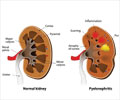Plazomicin Medication Information
Discover comprehensive details about Plazomicin, including its pronunciation, uses, dosage instructions, indications, and guidelines on how and when to take it or avoid it.
The updated prescription information covers potential side effects, precautions, warnings, and storage recommendations.
Additionally, explore the Plazomicin brands available in India and internationally, along with pricing information. For personalized advice, consult your healthcare provider.
Generic Name : Plazomicin Pronunciation : pla-zoe-MYE-sin Therapeutic Classification : Anti- BacterialsBrand Names or Trade Names of Plazomicin
India :
Zemdri
Overview of Plazomicin
Plazomicin injection for intravenous use is prescribed for treating complicated urinary tract infections, including pyelonephritis in adult patients. FDA approved it on June 25, 2018.Why is Plazomicin Prescribed? (Indications)
Plazomicin is an antibacterial drug prescribed as an injection to be administered into the vein for treating adult patients suffering from complicated urinary tract infections (cUTI) including kidney infections such as pyelonephritis.Plazomicin is recommended only when a definite proof of bacterial infection is suggested. It should never be prescribed without performing culture sensitivity tests to avoid resistance to the microorganism and to other antibacterial drugs.
When should Plazomicin not be taken? (Contraindications)
Plazomicin should not be used in patients with-• Allergy to plazomicin
• Pregnant women
• End-stage kidney disease
• Neuromuscular disorders
• History of Clostridium difficile-associated diarrhea (CDAD)
• Bloodstream infections or septicemia due to ineffectiveness
Plazomicin should not be used in patients less than 18 years of age as the safety and efficacy of plazomicin has not been tested in these age groups.
Caution is required while treating breastfeeding women as a minimal amount of plazomicin is expected to appear in mother’s milk; therefore monitoring baby’s health is necessary.
What is the dosage of Plazomicin?
• The recommended dose of plazomicin is 15 mg/kg body weight given once daily.• The maximum duration of treating with plazomicin is seven days.
• The dose of plazomicin can be adjusted or reduced based on the kidney function and according to the patient’s creatinine clearance (CLcr).
Dose adjustment in patients with kidney disease:
• Creatinine clearance between 60 to 90 = 15 mg/kg body weight once daily
• Creatinine clearance between 30 to 60 = 10 mg/kg body weight once daily
• Creatinine clearance between 15 to 30 = 10mg/kg body weight once in two days
Do not use plazomicin in patients with a creatinine clearance less than 15mL/min or in patients undergoing hemodialysis or continuous renal replacement therapy (CRRT).
How should Plazomicin be taken?
• Plazomicin should be given into a separate intravenous (IV) line as an intravenous infusion or directly into the vein.• Plazomicin injection should be diluted with 0.9% sodium chloride or Lactated Ringer’s solution to make the volume up to 50 ml before administration.
• Do not mix plazomicin injection with other drugs or never inject drugs into the same IV line of plazomicin infusion.
• A healthcare provider should do the dilution of plazomicin injection under an aseptic or a sterile environment free from microorganisms to avoid contamination.
What are the warnings and precautions for Plazomicin?
• Plazomicin causes kidney damage, and patients must be monitored for their kidney function before and daily during the treatment with plazomicin; monitoring should be done particularly in patients with a family history of kidney disease or elderly patients who have a high risk of kidney dysfunction.• Hearing loss is expected to occur during the treatment with plazomicin and patients must be carefully observed for any decline in hearing and should be treated appropriately.
• Injection vial of plazomicin should be inspected visually before administration for the presence of any visible particles and should be discarded if such things are present.
• Clostridium difficile-associated diarrhea (CDAD) may occur during plazomicin therapy and patients must be supported with fluid or electrolyte therapy. Never take an anti-diarrheal drug without a physician’s approval.
• Never give plazomicin to a patient with no suspected bacterial infection as it may cause the development of drug-resistance bacteria complicating the treatment schedule.
• Plazomicin affects the muscles and results in muscle weakness mainly in patients with a history of neuromuscular disorders such as myasthenia gravis.
What are the side effects of Plazomicin?
• Diarrhea• Decreased kidney function
• Ringing sensation in the ear
• Loss of hearing
• Headache
• Nausea and vomiting
• Dizziness
• Fluctuations in blood pressure
• Hematuria
• Breathing difficulty
• Increased alanine aminotransferase enzyme level
• Gastritis
What are the other precautions for Plazomicin?
• Plazomicin treatment should only be suggested to patients with no alternative therapies or those with limited treatment options.• Treatment with plazomicin should be discontinued if any allergic reaction occurs and the patient should be treated in a critical care unit to avoid life-threatening complications.
What are the Drug Interactions of Plazomicin?
Patients receiving neuromuscular blocking agents such as succinylcholine, atracurium or pipecuronium should be observed carefully as plazomicin taken together with these drugs can further worsen muscle weakness and may lead to neuromuscular disorders.What are the storage conditions for Plazomicin?
• Plazomicin injection should be stored at a controlled temperature in a refrigerator between 2° C to 8°C.• Protect from excess light and moisture.
 MEDINDIA
MEDINDIA
 Email
Email






